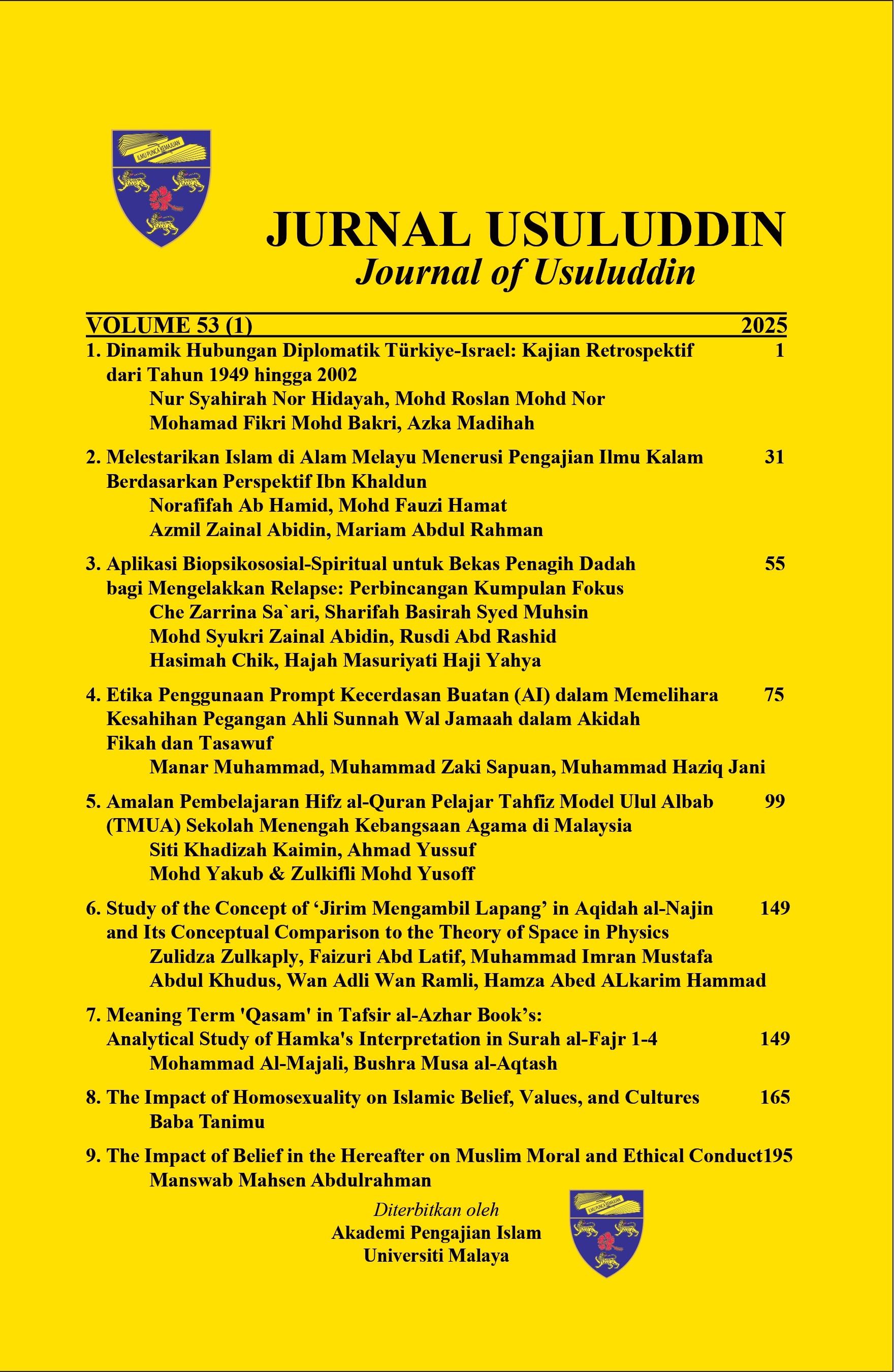The Impact of Belief in the Hereafter on Muslim Moral and Ethical Conduct
Main Article Content
Abstract
Belief in the afterlife constitutes a fundamental pillar of Islamic faith, profoundly influencing both the devotional practices and moral conduct of Muslims. This study examines how this belief shapes Muslim behavior guiding acts of worship and fostering virtues such as honesty, justice, and compassion. Despite Islam’s emphatic teachings on the hereafter, many Muslims exhibit behaviors incongruent with this belief, such as neglect of worship, ethical lapses, and excessive worldly preoccupations. Consequently, the study’s central research question emerges: What are the most significant manifestations of afterlife belief in a Muslim’s daily life? The study employs a descriptive-analytical approach, examining Quranic texts and Hadith to elucidate concepts related to the afterlife. It also analyzes contemporary Muslim behavior through this lens. The deductive method derives behavioral and moral principles from religious texts, while the inductive method evaluates real-world examples of conduct influenced (or uninfluenced) by this belief. The findings affirm that genuine belief in the afterlife serves as a powerful motivator for religious and ethical adherence. When internalized, it fosters a cohesive Muslim society striving for holistic success—balancing temporal well-being with eternal salvation.
